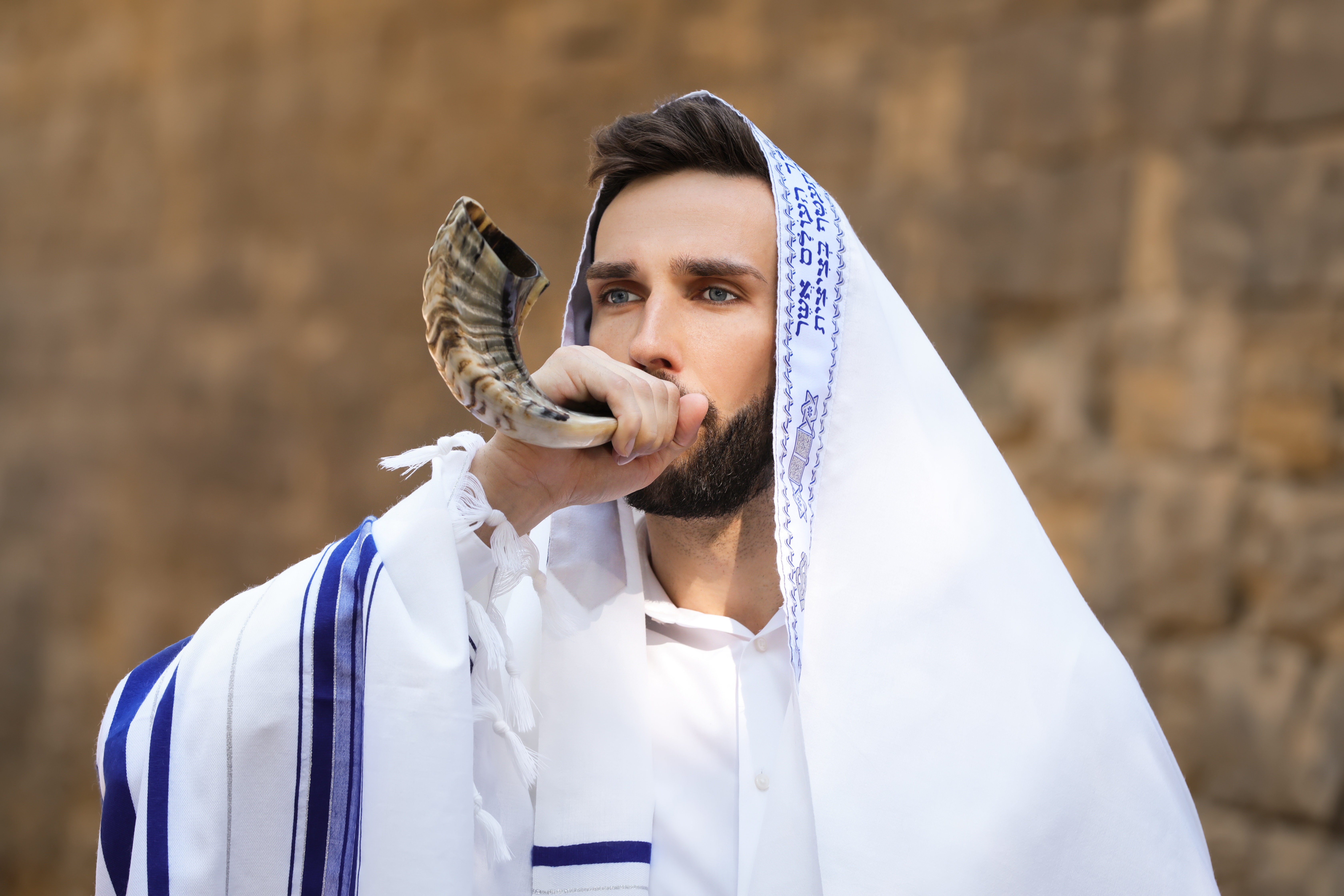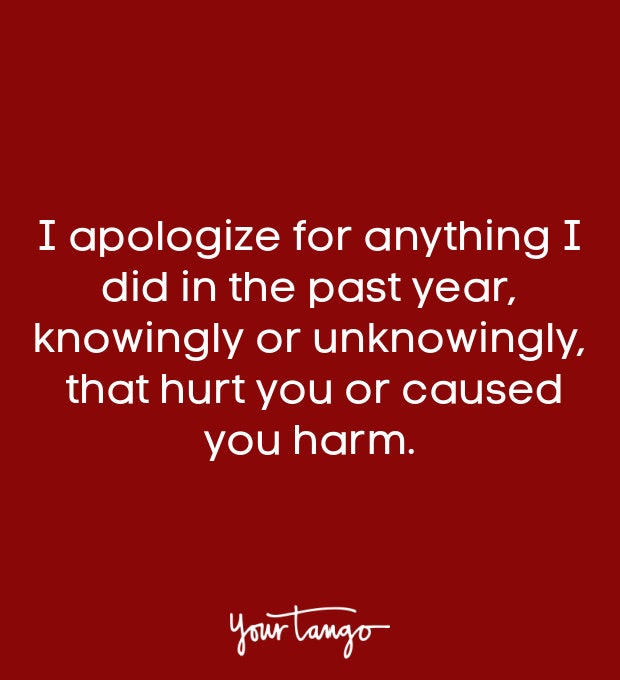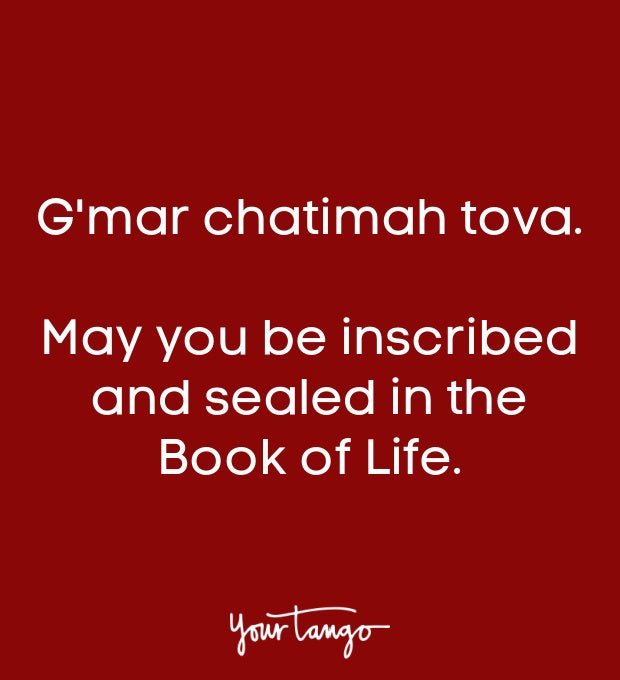The Meaning Of Yom Kippur (And How To Greet Someone Who Is Fasting)
Yom Kippur is considered the holiest of holy days for Jews.
 New Africa / Shutterstock
New Africa / Shutterstock This week Jews around the world will observe (note I did not say celebrate) Yom Kippur, considered the holiest day of the year.
Yom Kippur begins at sunset on Wednesday, September 15, 2021 — on the Hebrew calendar, that is the 10th day of the month of Tishrei in the year 5782 — and ends once three stars are out on Thursday, September 16, lasting approximately 25-26 hours in total.
What is Yom Kippur?
In Hebrew, Yom Kippur means "Day of Atonement" and is thought of as the culmination of the "10 Days of Awe" (yamim noraim in Hebrew). It is referred to in the Torah as "Yom HaKippurim" and the "Sabbath of Sabbaths."
According to Jewish belief, over the course of these 10 days, God inscribes in the Book of Life, which was opened on Rosh Hashanah, the names of the righteous (who will live) and of the wicked (who will die).
The day is therefore spent in reflection, prayer and repentance as we ask God to forgive us for our transgressions before the book is closed for the coming year, sealing our fates.
Why do we fast on Yom Kippur?
Jewish law instructs us to "afflict our souls" while asking for forgiveness on Yom Kippur. This means we do not eat or drink, bathe, apply lotion, cremes or makeup, wear leather or engage in either work or sexual activity.
Exceptions to the rule on fasting are made for those who are under the age of 13, the elderly, and people who are pregnant or sick, none of whom are required to fast.
How is Yom Kippur celebrated?
Again, this holy day is not so much celebrated as it is observed.
Prior to the start of Yom Kippur, it is traditional practice to offer apologies to those you may have harmed in the prior year. This is preferably done in person, but may be done over the phone or by other communication if that is not possible.
It's best to apologize for what you know you have specifically done wrong, but a good generic version of an apology you can offer prior to Yom Kippur is: "I apologize for anything I did in the past year, knowingly or unknowingly, that hurt you or caused you harm."

Many Jews wear white on Yom Kippur for a variety of reasons. Some say we wear white because when we fast, we transcend our physical needs and are like angels.
Others hold that we wear white to be like the ancient high priests, who would typically wear colorful special garments while serving in the Holy Temple, but would wear simple white garments on Yom Kippur.
More specifically, Jewish men may wear a white kittel, a robe that resembles a burial shroud, because it "humbles our hearts, reminding us of our mortality and the need for repentance." Interestingly, Jewish men traditionally also wear a kittel during their wedding ceremony.
Observant Jews spend much of Yom Kippur in synagogue praying, beginning with the Kol Nidre (Hebrew for "all vows") service on erev Yom Kippur (the first evening) and ending with the Neilah (Hebrew for "locking") service, which closes with the blowing of the shofar as the gates of Heaven and Book of Life are believed to be closed.
The services end with a final prayer: l'shanah ha-ba’ah b'Yerushalayim, which means "next year in Jerusalem" — a reminder of the Jewish people's centuries old yearning to return to Israel, the native ancestral homeland from which they were expelled.
Following the final service, Jews will often gather with family and/or friends for a meal they refer to as "break fast," where they literally break the fast.
What do you say to people on Yom Kippur?
Given the way we typically think of holidays here in the US, it would be natural to assume you should wish someone a "Happy Yom Kippur."
But while most people who are Jewish would never correct anyone for doing so, Yom Kippur is a somber, reflective day that is not meant to be thought of as "happy."
Traditional Jews greet each other with "G'mar chatimah tova," which means "a good final sealing" in the Book of Life.
Other versions of this include simply "G'mar tov," meaning "a good ending," and "Ketiva v’chatima tova," which means "a good final writing and sealing."
Some also say "May you be inscribed in the book of life" or "May you be inscribed and sealed in the book of life."

Before beginning their fast, many wish one another an easy fast, or in Hebrew, "tzum kal."
There are those who feel that greeting isn't quite right, as the fast is not meant to be easy. They may instead prefer to wish others a meaningful fast.
But in general, any of these options are welcomed and very much appreciated.
The best time to offer any of the above greetings to your Jewish friends is prior to the time Yom Kippur begins.
Deputy Editor Arianna Jeret, MA/MSW, holds a master's degree in Judaic Studies from the Jewish Theological Seminary of America and has been featured in Cosmopolitan, The Huffington Post, Yahoo Style, MSN, Fox News, Bustle, Parents and more. Find her on Twitter and Instagram for more.

